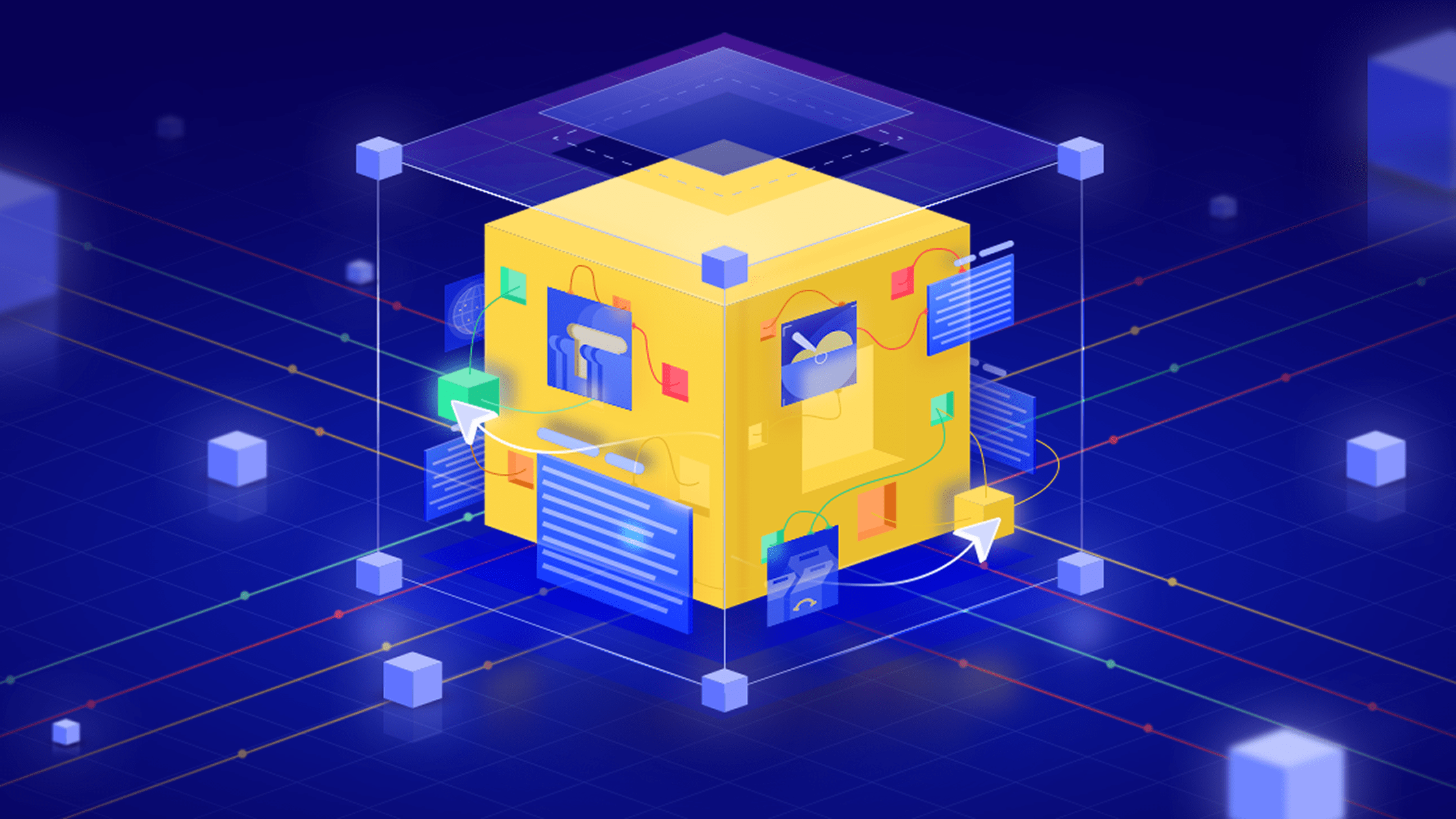Recent advances in AI, specifically large language models (LLMs) such as ChatGPT, LLAMA, and Stable LM, among others, are transforming the way we think, work, and create. Generative AI is empowering people from all walks of life to do more, faster, and enabling them to quickly learn, understand, ideate, and create – all with a simple text prompt. Generative AI has immense potential to help creatives and marketers accelerate content creation, but the value doesn’t stop here. Marketers and customer experience professionals are leveraging the power of AI to reshape entire industries. From hyper-personalizing content for each customer to optimizing ad-spending on autopilot, we are already living in a future where our imagination is the only limit.
How do companies use AI in digital marketing?
The global artificial intelligence market is estimated to generate half a trillion in sales by the end of 2023 and more than 61% of marketers have used AI for marketing. The top 5 uses of AI in marketing have been reported for:
- Content personalization
- Content creation
- Marketing optimization
- Programmatic advertising and media buying
- Predictive analytics for customer insights

As we are learning more about these tools, it’s becoming clearer that success is in seamless integration, rather than replacement. That's why marketers need to keep upskilling themselves. Teams that have embraced AI tools have outperformed competitors.
In this blog post, we'll look at some of the applications of AI used in digital marketing. Along with successful case studies, we’ll explore tools that you can use to achieve your goals.
1. Enhanced Customer Experience with AI Content Personalization
Companies that keep their customers engaged through personalized experience are the ones that are sprinting ahead in their revenue growth. They are not just running the race; they are winning it!
71% of customers expect brands to deliver personalized experiences. 76% of customers get frustrated when it doesn't happen. From increasing customer satisfaction to retention, content personalization is being used across a wide range of industries.
Personalized Product Recommendations
Currently, there are 26.5 million e-commerce sites across the globe making e-commerce a highly competitive market. Brands analyze data points such as users' purchase history and activity to recommend products they're more likely to buy. AI tools personalize product recommendations based on reviews, user purchase history, seasonal trends, and similar customer data points.
Tools: vue.ai, Amazon Personalize, LimeSpot
Amazon's AI-Driven Product Recommendations Transforming Your Shopping Experience
Amazon is the world's largest online retailer and is one of the brands using personalization through product recommendations. The section on their website "customers who bought this item also bought" or "related items that you have viewed" offers personalized product recommendations based on a user's purchase history and activity.

Personalized Emails and Messages
The value of personalization isn’t just limited to the point of purchase but extends beyond sales to customer service and support. By using highly curated and contextual communication throughout a customer’s journey, companies can put the right information in front of customers at the right time. This approach not only establishes trust and deepens relationships but also increases the chances of them spending more on products.
Tools: Dynamic Yield, ActionIQ, Vue.ai
Striking a Chord: Spotify's Symphony of Hyper-Personalization
What truly distinguishes Spotify from its competitors is the level of hyper-personalization it offers. Spotify Wrapped campaign, for example, uses the unique historical data of users to send them a review of their listening habits, including the most-listened-to artists and genres of the year - creating a musical diary of emotions and memories. This hyper-personalized experience sets off a ripple effect, leading the brand to market itself seamlessly through its dedicated user community thereby strengthening the brand even further and improving customer retention.

Dynamic Website Personalization
Dynamic websites take online personalization to the next level, sculpting a virtual experience that mirrors your users’ unique preferences and desires in real-time. Instead of your users navigating the site, it seamlessly adapts to create an experience tailored just for them. This leads to increased user engagement which ultimately leads to more sales generated.
Tools:https://10web.io/, wix.com
Unveiling Nike's Personalization Revolution with Dynamic Websites
In the ever-evolving landscape of e-commerce, Nike stands out as a pioneering force, harnessing the full potential of Artificial Intelligence (AI) to craft a personalized shopping experience like no other. At the heart of this innovation lies their dynamic website, a platform driven by sophisticated algorithms that keenly analyze their users’ past interactions and purchases.
Imagine this scenario: You're a devoted fan of Nike's iconic Air Jordans, having indulged in a pair or two over the years. Well, Nike's AI doesn't just stop at recognizing your past preferences; it actively utilizes this data to serve you recommendations that truly resonate. With each interaction, it refines its understanding of your unique style and taste.

2. Automated & Streamlined Content Creation with AI
In the quest for personalized customer experiences, there's an insatiable appetite for content. AI tools are reliable workhorses, delivering content in abundance, but the real star of the show is subject matter expertise, the secret sauce that propels your brand to greater heights. To start, the magic happens when AI seamlessly fits into your content creation workflow. Think about integration with your content management system, social media platforms, or email marketing software. Here are some powerful ways to harness AI for content creation.
AI for Content Writing
From developing captions, social media posts, and email subject lines to blog posts, AI can help you generate content. However, it's important to understand that most AI-generated content has its limitations and that the content generated isn't ready for publishing. Most marketers use these tools to generate the parts of the article. They then fact-check and edit to add a human touch and to make it consistent with their brand.
Tools: ChatGPT, Jasper, copy.ai
Revolutionizing Hospitality: Booking.com's Game-Changing Approach to Generating Hundreds of Listings through Cutting-Edge AI
Booking.com employs AI tools to simplify the listing process for hosts. When creating a listing, hosts no longer need to craft a description; instead, AI algorithms automatically generate unique, optimized descriptions based on provided amenity information and photos.

AI for Video and Audio Transcription
Say goodbye to painstaking hours of audio transcription. With AI transcription tools, it's a breeze to convert spoken words into text, even identifying speakers and timestamps. From transforming meetings into podcasts to transcribing conference discussions, AI tools not only save time and effort but also offer benefits such as improved accessibility for individuals with hearing impairments and enhanced content searchability.
Breaking Language Barriers: How a Tech Conference Transformed Talks into 7-Language Digital Content
Consumer Technology Association (CES) is the proving ground for breakthrough technologies and global innovators. The event draws a diverse audience from all corners of the world, both online and in person. With a focus on high-impact video content, they've harnessed the power of audio transcription to take their panel discussions and talks global, streaming them in seven different languages - making their content more accessible to a wider audience.

AI for Graphic Design and Visuals
In the ever-evolving realm of design, AI isn't just a tool; it's a catalyst for unlocking boundless creative frontiers. It redefines how designers innovate, iterate, and explore uncharted territories, allowing their artistic vision to flourish. However, the human touch remains irreplaceable. Design that aligns seamlessly with the brand's identity and narrative depends on the nuanced understanding and emotional depth that only humans can provide.
Tools: Adobe Firefly, Khorma, PicsArt
Heinz's Game-Changer: DALL-E Powers a Full-Scale Campaign
In 2021, Heinz orchestrated a global social experiment that turned into a global sensation in the creative industry. Participants from 18 countries, were challenged with a simple task: "Draw ketchup." without knowing Heinz was behind this experiment. The result was a diverse array of artistic interpretations, but the unifying thread that ran through every single drawing, regardless of artistic skill or cultural background, was the unmistakable Heinz Ketchup bottle.
Fast-forward to 2022, Heinz ventured into the uncharted territory of AI, using DALL-E to generate images from text descriptions. What they found was nothing short of extraordinary. The AI consistently rendered a Heinz Ketchup bottle when presented with the word "ketchup," and even when faced with intriguing descriptors like "Ketchup Art" or "Ketchup bottle floating in a swimming pool", “Ketchup in space”, "Ketchup Renaissance". Those AI-generated ketchup images became the stars of print ads and billboards, solidifying HEINZ's iconic status.

3. Improve ROI by Optimizing Marketing Content
When marketers invest resources to customize content in sync with their audience's desires, they're setting the stage for higher engagement, conversion rates, and unwavering customer loyalty – all leading to a remarkable ROI. Here are some of the ways AI can be used to optimize marketing.
AI for Keyword research and planning
Finding the correct keywords is the most time-consuming task in the entire SEO process. And like any other research project, keyword research is an iterative process. With AI tools you can automate data analysis, keyword research, competitor analysis, user intent analysis, and local search trends discovery. It can streamline the process and predict keyword search success, ultimately helping businesses optimize their content for search engines and improve their search rankings.
Tools: GetGenie.ai, Market Muse, Keywords insights AI, INK
AI for SEO
AI's SEO edge? It's all about supercharging content for search engines. AI tools can analyze website traffic and identify keywords to improve search engine rankings. After keyword identification, you can use writing tools to create an outline for the articles and write themt. However, you need to edit and fact-check since Google is always looking for ways to improve its ability to identify high-quality and engaging content.
Google's stance on AI-generated content is that it's not against its guidelines as long as it provides value for readers.
AI for Technical Audit
In the competitive world of SEO, time is of the essence. Unearthing the right keywords and dissecting competitor strategies can be a laborious task. You can use AI tools to examine the data from top-ranking sites and use the information to find opportunities for your business to rank higher. In addition to that, self-optimizer tools for traffic ROI automatically generate sitewide page titles with real-time focus keywords for A/B testing and to boost organic traffic.
Tools: Outranking, ProRank Tracker
4. Revolutionizing Advertising by AI Programmatic Media Buying
Imagine AI in programmatic advertising as a GPS navigation system for marketers. It not only shows you the fastest route to your destination but also continuously monitors traffic conditions, recalculating your path in real time to ensure you always reach your goals efficiently. It's like having an expert navigator who adapts to changing conditions, helping you stay on the right course for success.
Conventional tools don't allow marketers to change their strategy in real-time based on new information and consumer trends. AI tools help make smarter media buying decisions faster through programmatic advertising with less human input. Brands are now analyzing data points such as purchasing history, social media activity, location, and demographic data to create personalized ads for better engagement and conversion rates. For paid advertising, AI optimizes bids based on different factors. This allows companies to outcompete other advertisers by bidding on the most effective marketing channels at the most competitive prices. Other benefits include automating the placement process, real-time design optimization, and fraud detection.
Tools: IBM Watson, Adobe Advertising Cloud, WarRoom
Into the Fast Lane: Audi's Remarkable 400% Conversion Rate Surge via Programmatic Ads and Media Buying
Audi didn't just sell cars; they ignited dreams with a car configurator that transformed mere consumers into creators. A car configurator on Audi's website was designed to help consumers create their dream automobile. As the engines roared to life, so did a treasure trove of insights about users' tastes that could be used to dynamically drive ad creatives.
From zero contact to a fully-fledged car configuration, each step guided the Audi marketing team in crafting hyper-relevant ads. But here's where the real magic happened – AI swooped in, conjuring nearly 6,000 variations of ads, each perfectly tailored for different audiences. The result? A programmatic buying strategy that didn't just drive conversion rates; it left traditional methods in the dust, revving up a conversion rate four times higher.

5. Peer into the Future with AI Predictive Analytics and Customer Insights
Predictive analytics is where AI tools reveal their true superpower. Picture a world where you don't just analyze data; you predict the future with uncanny precision. With AI tools for predictive analytics, that world is yours to explore, and every decision you make is backed by data-driven foresight.
How Predictive AI Keeps Your Website on the Top
In the dynamic realm of SEO, AI is the sentinel ensuring your website's reign. It anticipates ranking shifts by aligning on-site elements with the latest search engine algorithms. What's more, AI uncovers traffic patterns by dissecting historical data, accounting for daily visits, audience behavior, competitor performance, and topic trends.
Battling Churn with Predictive AI for Customer Retention
In the relentless quest to keep customers committed, AI emerges as the ultimate ally. It doesn't just predict churn; it stops it dead in its tracks. With laser-like precision, AI scours through purchase histories, account activities, and engagement metrics to identify the customers most likely to drift away.
It doesn't stop there. AI tools enable marketers to craft personalized experiences and irresistible offers, ensuring customers not only stay but thrive. It's not just about retaining customers; it's about nurturing lasting relationships and securing your brand's future.
Tools: IBM Watson Customer Analytics
Gateway to Precision and Profit with AI Dynamic Pricing
Dynamic pricing, a savvy strategy in the world of commerce, hinges on AI's analytical prowess. It's like having an expert market observer who continuously dissects vast data—market trends, sales figures, competitor insights, and more. The result? Invaluable insights and predictions that lead to finely-tuned pricing strategies tailored to a business.
For eCommerce, this means personalized pricing—diverse rates, enticing promotions, and tailored discounts for distinct customer segments. AI's dynamic pricing prowess lets brands seize the profit wave when demand soars, ensuring your business stays ahead in the pricing game.
Tools: DataWeave, RootItPlatform
Cracking the Code: Amazon's Dynamic Pricing for Soaring Sales Success
Amazon has one of the most robust dynamic pricing strategies, with some credible sources reporting that Amazon changes 2.5 million times a day. Amazon's dynamic pricing strategy is based on different factors, including shopping patterns, inventory, profits, and competitor prices.
But it's not just about business. Customers trust Amazon for its pricing transparency. They know they're getting competitive deals, which fosters loyalty and trust. In the world of e-commerce, Amazon's dynamic pricing isn't just a strategy; it's a commitment to customers' confidence.

Conclusion
In the grand symphony of AI and digital marketing, it's easy to be captivated by the seamless precision, the sheer volume of data, and the unprecedented efficiencies that AI brings to the table. Yet, as we navigate this brave new world, it's essential to remember that behind every algorithm, every predictive model, and every dynamic pricing strategy, there's an undeniable truth – the indomitable power of human creativity.
The real magic doesn't lie solely in the data-driven forecasts, the personalized experiences, or the meticulously tailored campaigns. It resides in the human touch, in the depth of emotion that only we can infuse into our creations. The true triumph in this digital age lies in our ability to combine the analytical precision of AI with the boundless creativity of the human spirit. AI can analyze, predict, and optimize, but it cannot feel. It cannot dream. It cannot forge the authentic, emotional connections that define lasting brand loyalty. AI can be our navigator, but it is the human heart that fuels the journey.
Costs less than agencies.
.svg)






.svg)


